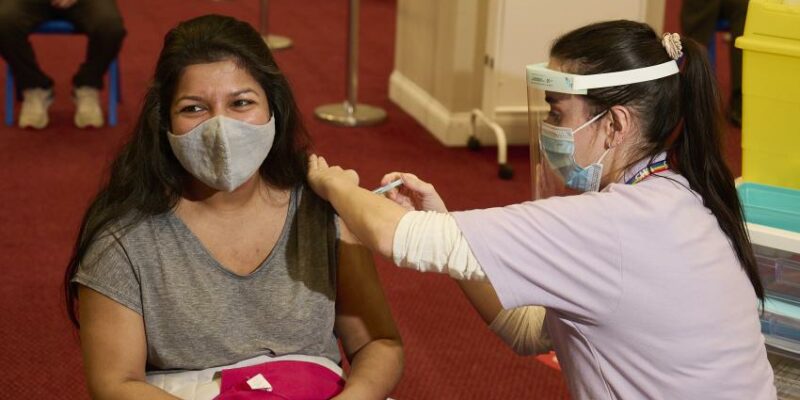
In a new briefing VHS tells the story of how its research has enabled the third sector to influence the policy and practice surrounding the Covid-19 vaccine roll-out in Scotland.
By December 2020 the Covid-19 vaccine programme was getting underway, as the NHS rolled out the Pfizer and Astra Zeneca vaccines on what would rapidly become an industrial scale, with dedicated vaccine centres established at key locations throughout the country and blue invitation letters dropping through people’s letter boxes. VHS knew it was crucial that the policy makers in charge understood the enablers and barriers to the take-up of the vaccine and we had a strong sense that the third sector would have unique insights into these. We were deeply concerned that some population groups would get left behind and health inequalities compounded, unless targeted communications and actions were taken to ensure the inverse care law didn’t apply. Our main objective in carrying out research was to gather vital third sector intelligence and share it with policy makers in the Scottish Government and Public Health Scotland.
From the onset of our research planning we had some confidence that this work had the potential to be influential. Remarkably, the research generated significant interest in policy makers within the Scottish Government and Public Health Scotland before it had even been analysed, written up or published. The very fact that we were conducting such research provoked questions and discussion that might not otherwise have taken place at all or so quickly. Once our findings were published they were disseminated widely across the public health community and recognised as credible and useful evidence. Our research was also seen as unique, as there was no comparable data available elsewhere. The research played a part in convincing the Scottish Government of the need for a Covid-19 Inclusive Vaccine Programme and our recommendations have been incorporated into the programme.
Read the new briefing: VHS Inclusive Vaccine Influencing Briefing June 2021 to find out what we achieved and how, and to find out more about planned next steps.
Read the research findings and recommendations published in April 2021: Vaccine Inclusion – Reducing inequalities one Vaccine at a time’.
